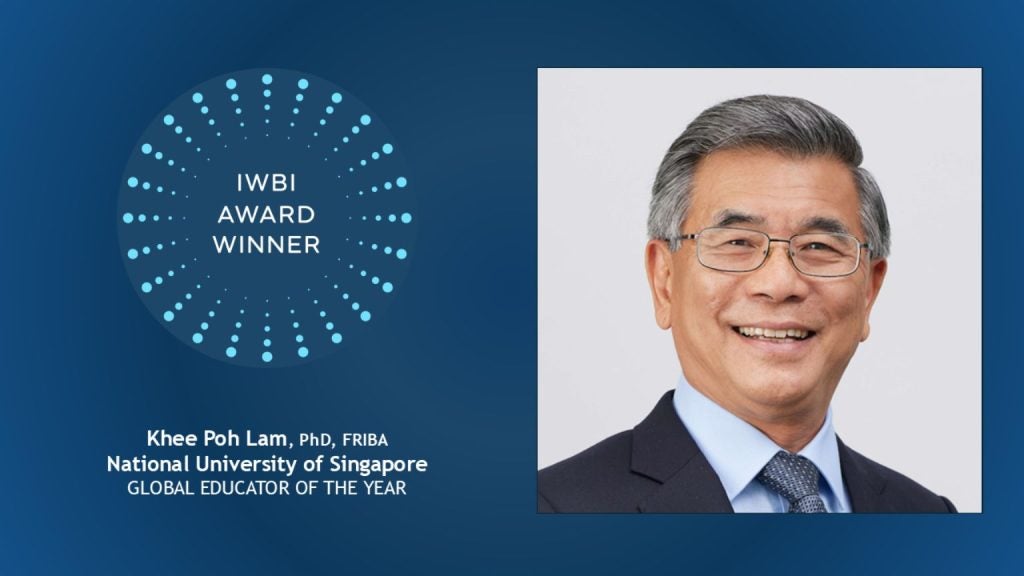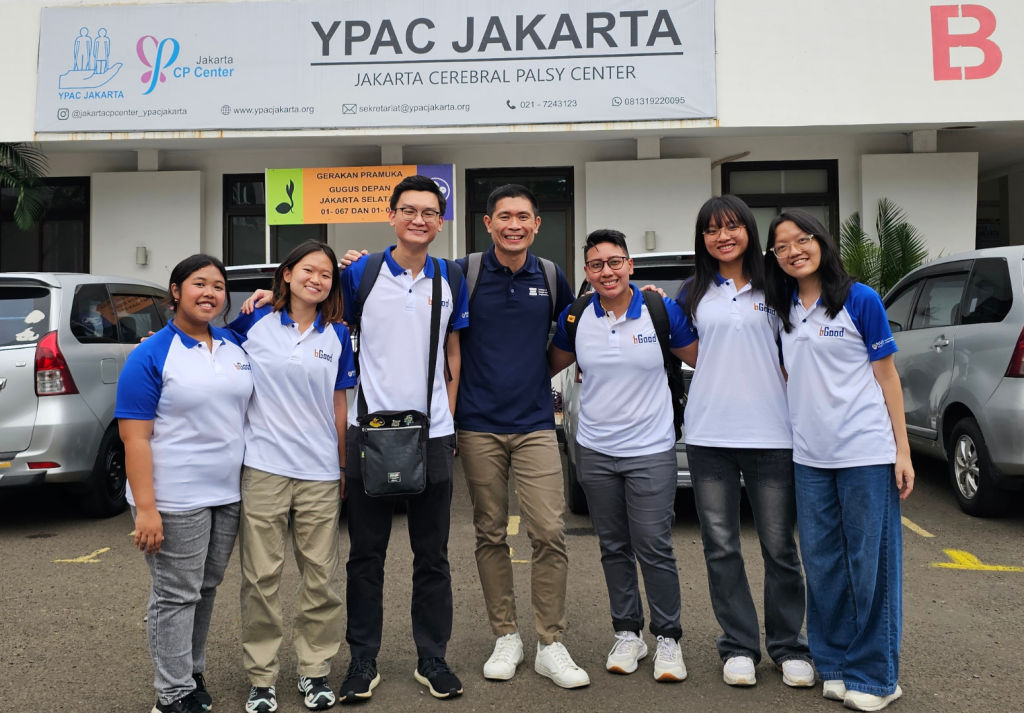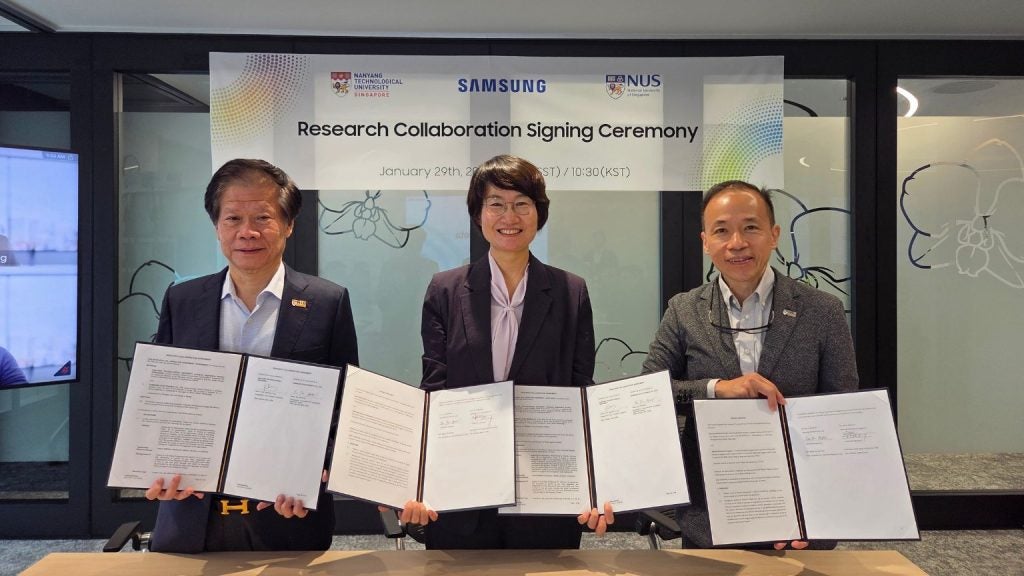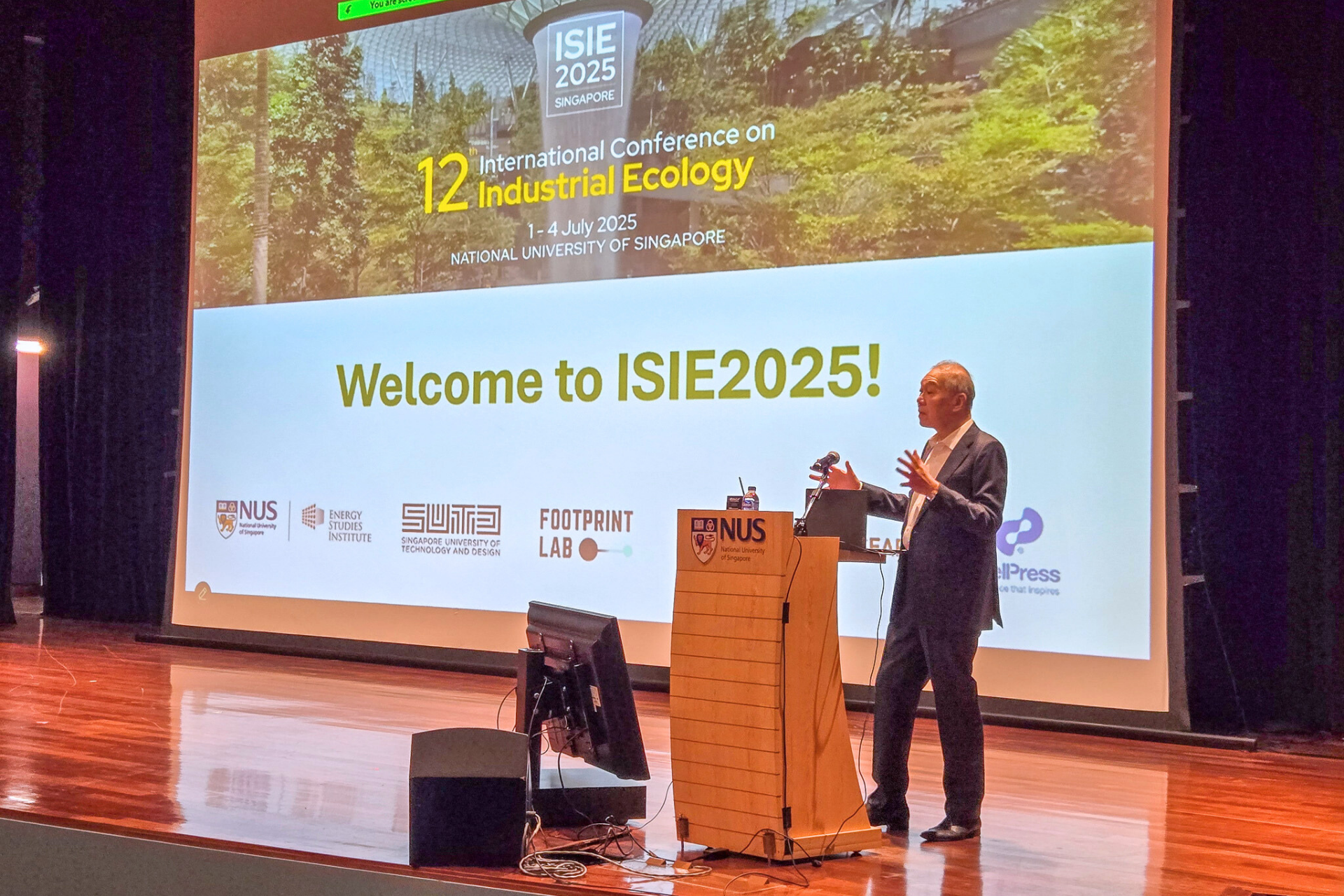
From 30 June to 4 July 2025, researchers and academics congregated in NUS for a lively conference by the International Society for Industrial Ecology (ISIE) in a growing field involving the study of the nature of how energy and material stocks flow in and through a socio-economic system.
Researchers seek to understand the impact of these flows on sustainability in a holistic manner to transform the current linear manner of energy or material use, that is, how energy or materials are extracted, processed, produced, consumed, and then currently discarded, into a closed-loop one, in which waste becomes a valuable resource.
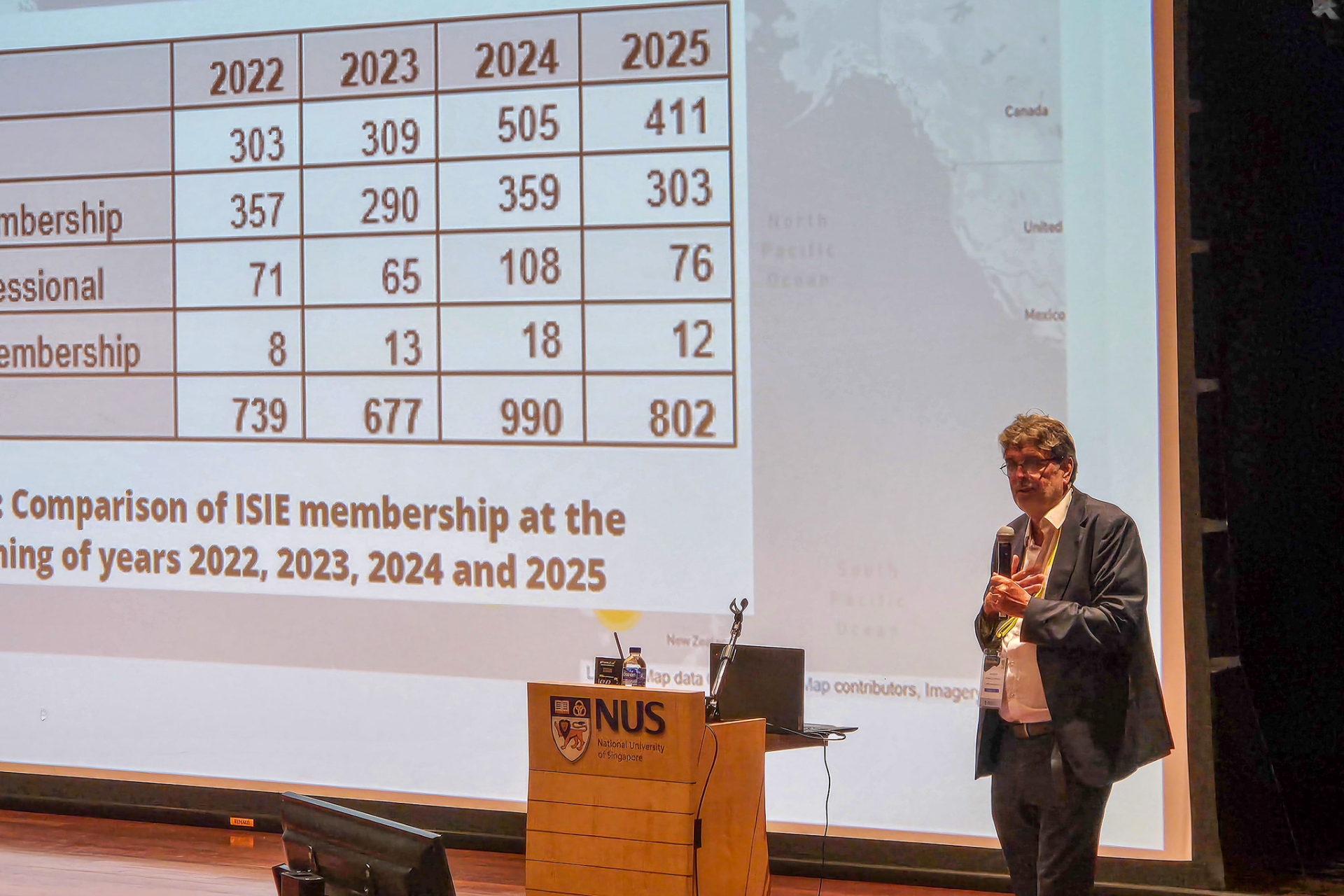
Founded in 2001, the International Society for Industrial Ecology promotes industrial ecology to address sustainability challenges and achieve a circular economy. The field gained even more traction amongst researchers as the circular economy became a leading concept in academic, industrial, and policy circles around the 2010s.
In CDE, researchers work on various aspects relevant to industrial ecology, including the successful recycling of materials, which depends on the processing and application of materials to enhance the performance of new products and conducting life cycle assessment to determine the environmental benefits and impacts of materials, including recycled ones.
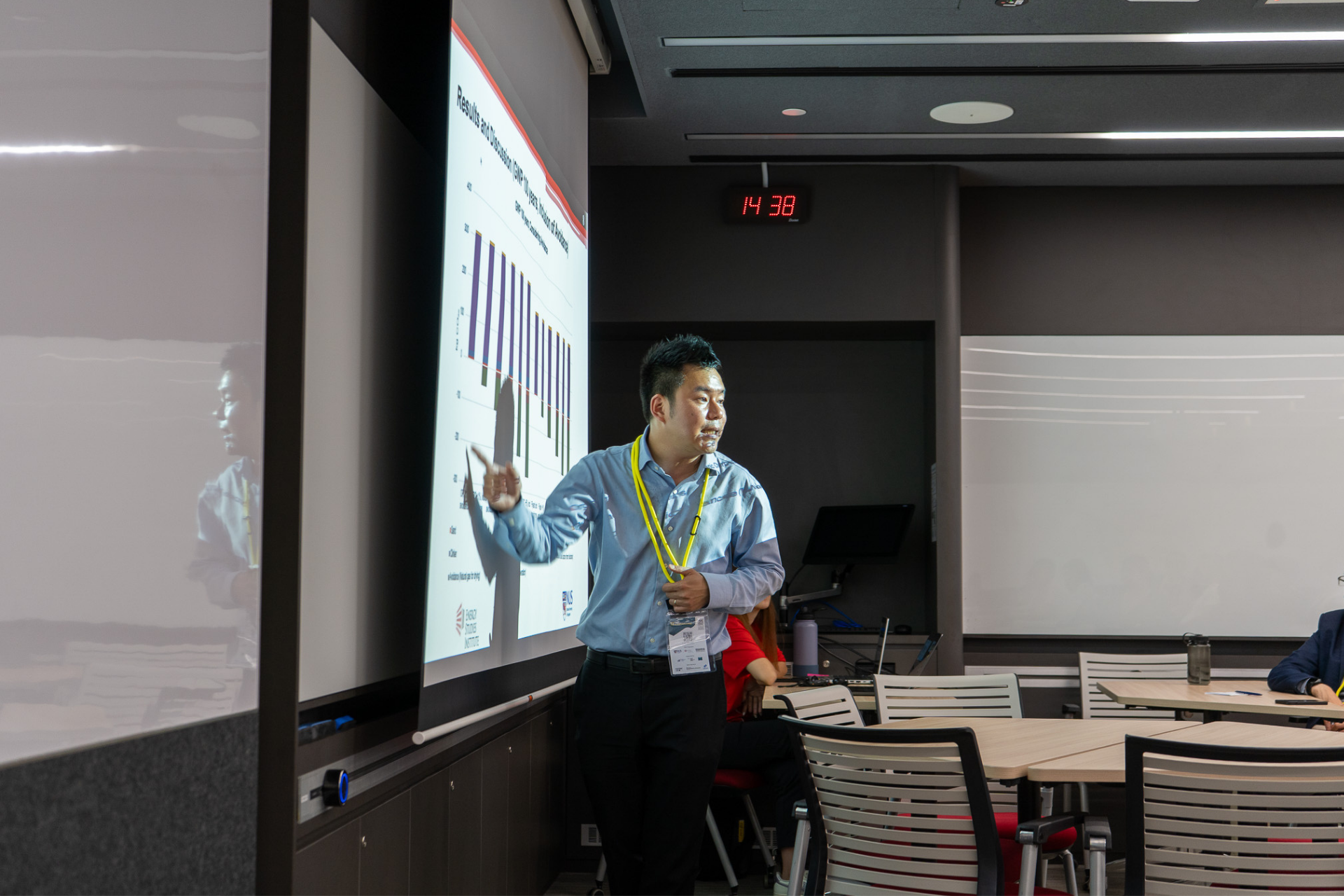
True to its multidisciplinary outlook, researchers come from diverse disciplines in CDE. One is Mr Alvin Ee, a PhD student from the Department of the Built Environment, supervised by Associate Professor Kua Harn Wei.
Assoc Prof Kua, a Co-Chair of the ISIE Organising Committee, shared that “Developing young scholars and changemakers has always been one of the key focuses of our Society. That is why we maintain the Society’s tradition of having a full-day symposium for Young Professionals a day before the official start of the conference.”
Alvin presented his doctoral research on the life cycle assessment of applying biochar to concrete. Biochar is made through pyrolysis, where biomass is heated to high temperatures (typically 300-1000°C) without oxygen, leaving behind a solid, carbon-rich residue. He aims to understand how much carbon emissions can be reduced by using biochar to replace cement in concrete. Alvin is also a researcher at Energy Studies Institute (ESI), the NUS co-organiser of ISIE 2025.
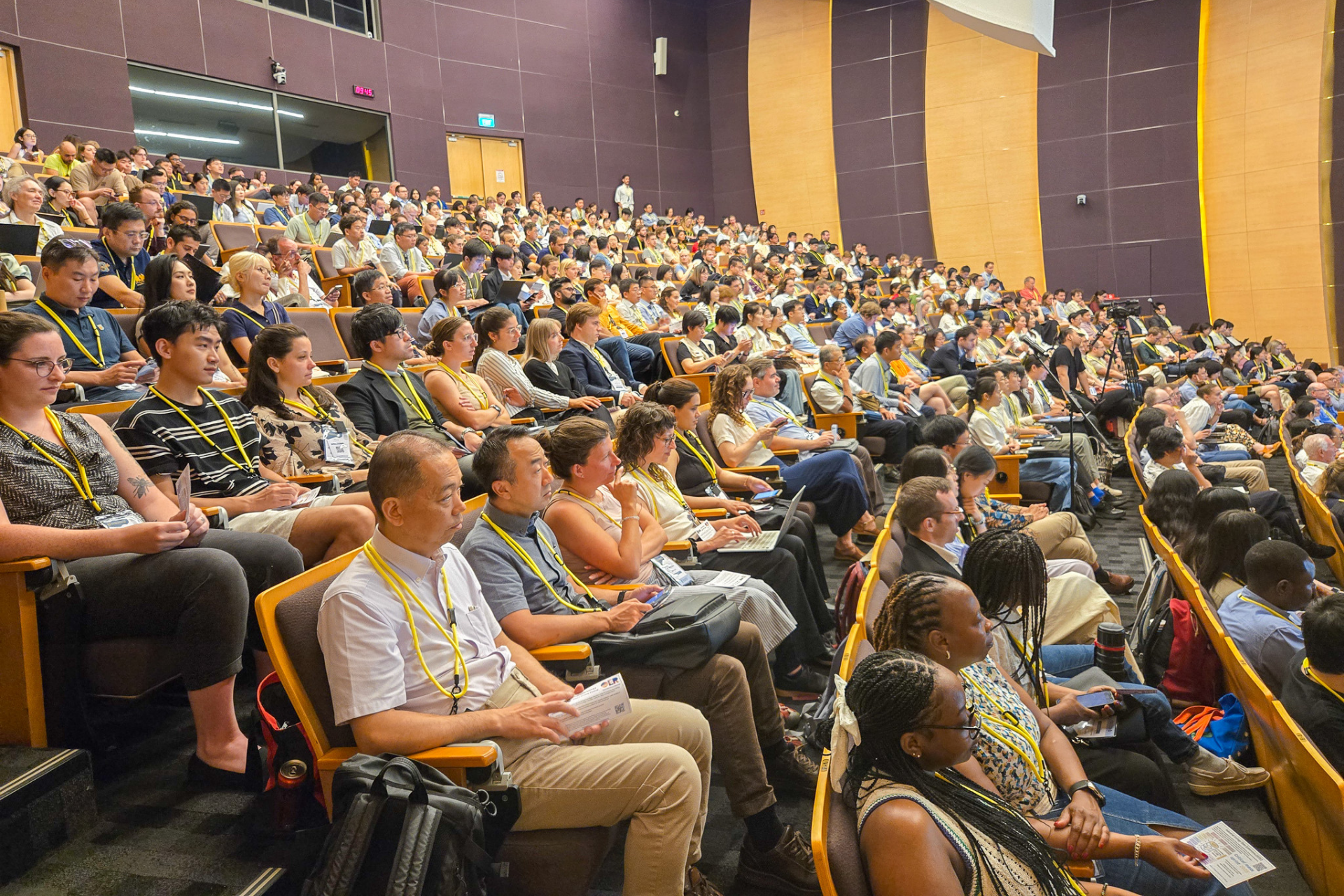
Highlighting that the collaboration reinforces NUS’ commitment to shaping interdisciplinary, systems-level thinking that can address the real-world complexity of sustainability challenges, Professor Lee Poh Seng, Executive Director of ESI said, "ESI is honoured to have co-organised ISIE 2025, a conference that resonates deeply with our mission to advance integrated, evidence-based solutions for energy and sustainability transitions. The theme of interconnectivity is especially timely, as we confront mounting pressures to decarbonise, digitalise, and dematerialise across sectors, recognising that the interdependencies between industry, infrastructure, ecosystems, and communities are crucial. Professor Lee is also Head of the Department of Mechanical Engineering in CDE.



